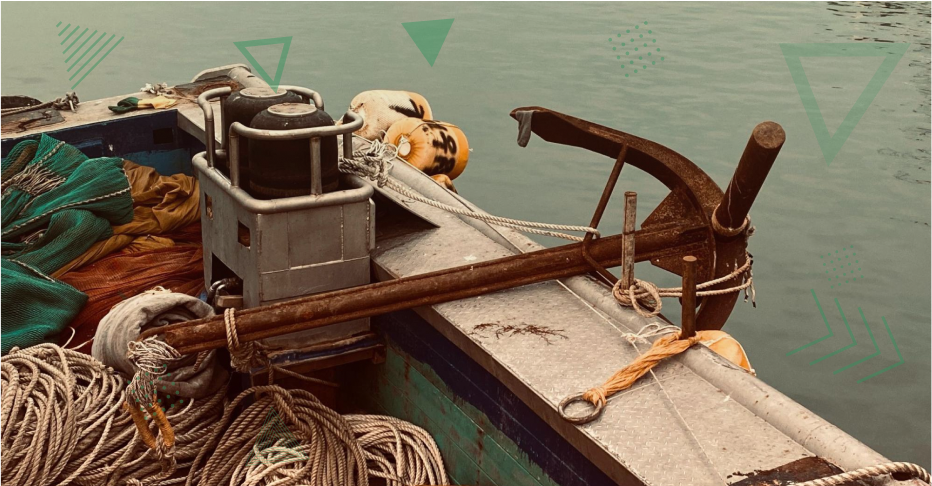
Leveraging Custom Software in the Maritime Sector

Data has emerged as a critical asset that holds the potential to revolutionise the way decisions are made in the maritime industry.
With the rapid development of advanced technologies, maritime businesses are presented with an opportunity to harness the power of data-driven insights through the development of custom software solutions.
This article dives into the importance of data for strategic decision-making in the maritime sector and highlights the value of partnering with custom software providers to unlock these advantages.
The Data-Driven Revolution in Maritime
In an industry as vast and complex as maritime, making informed decisions has always been challenging. The sheer volume of data generated from vessels, ports, cargo, weather, and regulations can overwhelm decision-makers. However, the emergence of the Internet of Things (IoT), custom software, and advanced sensor technologies has enabled the collection of real-time data from ships, containers, and various operational aspects.
Data analytics and machine learning algorithms can then process this data to provide actionable insights, enhancing operational efficiency, safety, and sustainability.
For instance, predictive maintenance powered by data analytics can prevent critical equipment failures, minimising downtime and reducing maintenance costs.
Amidst the sea of changes, the maritime community is reaping the benefits of data-driven decision-making in several crucial ways:
Connecting the Dots: The integration and sharing of data across the entire maritime ecosystem is paramount. From the heart of the vessel in the engine room to the strategic bridge and even the boardroom, data must seamlessly flow from ship to shore and throughout the supply chain. Creating a comprehensive platform that consolidates diverse data points, fosters transparency and insights across the maritime spectrum.
Compliance: The maritime industry operates in a regulatory landscape that is in a constant state of flux. The EEXI and CII regulations represent a monumental shift that could render a vessel’s CII rating a determiner of its “licence to trade.” To ensure compliance and the continuity of operations, maritime organisations must swiftly and judiciously make decisions that optimise their CII rating. Data-driven insights empower these organisations to navigate these changes efficiently.
Transparency: With shipping intricately linked to the global supply chain, data transparency has become an invaluable asset. A profound understanding of the data being collected, its origins, quality, and storage locations ensures that the right information is shared, fostering the seamless operation of the supply chain.
Accountability: In response to escalating concerns regarding environmental protection, crew well-being, and accidents, ESG performance reporting has taken centre stage for maritime companies. Extracting meaningful insights from data and using them as cornerstones for decision-making processes is pivotal in ensuring that shipping entities receive favourable scores in this vital realm.
Acting with Agility: The maritime environment is inherently dynamic, with variables changing rapidly. Shipowners, operators, and managers are tasked with making prompt and informed decisions. Data-driven decision-making, unlike traditional manual processes, enables nimble responsiveness to changes. This agility facilitates the modification of vessel priorities in nearly real-time, whether it involves meeting port schedules or optimising fuel consumption.
Feedback Loops: As the maritime sector grows more adept at handling and analysing data, the capacity to pose pertinent questions in a refined manner expands. Consequently, the recommendations generated by data platforms will become more refined as a symbiotic feedback loop develops. Both the platforms and users will elevate their proficiency in addressing the industry’s pivotal challenges.
Enhancing Commercial Viability: The competitive nature of the shipping market necessitates optimal efficiency for maintaining robust profit margins. Contemporary software algorithms harness the power of data to formulate cost-saving suggestions that personnel can leverage to drive operational efficiencies. Notably, in an industry where fuel expenses stand as the single largest operational cost, software platforms offer avenues to redirect funds towards decarbonization initiatives and other strategic priorities.
The maritime domain is embracing data-driven decision-making as a pivotal lever for navigating the evolving landscape. By integrating data across the ecosystem, ensuring compliance, fostering transparency, and optimising accountability and agility, the industry is poised to realise enhanced commerciality and operational resilience.
Challenges in the maritime industry

The upheavals of recent years have plunged companies at the forefront of global trade into an environment that poses existential challenges. Ship owners, operators, and charterers find themselves grappling with a constellation of intricate market forces: escalating global conflicts, persistent market rate volatility, surging fuel costs, the novel spectre of supply chain congestion, and growing pressures from customers, financial institutions, and regulators.
Amidst this multifaceted landscape, the imperative to meet these priorities while upholding profitability has intensified. In an age characterised by rapid and radical changes, the status quo is no longer tenable.
In this race against time, the traditional options of constructing more efficient vessels and transitioning to alternative fuels—though vital—prove to be costly and long-term ventures. The maritime industry’s urgency calls for solutions that drive immediate change while ensuring financial viability throughout the journey toward greener operations.
Enter digital technologies, with data as a central protagonist, to usher in a new era of shared reality. Data-driven decision-making, bolstered by advanced software platforms that interpret and distil information into actionable insights, holds the key to smarter, more sustainable choices.
These data-driven insights illuminate areas ripe for operational optimisation, yielding reductions in emissions and substantial cost efficiencies that positively impact bottom lines. The accrued savings, in turn, can be reinvested to propel the green transition forward, ultimately harmonising economic and environmental objectives.
However, forging this shared reality mandates the high-quality, validated, and standardised collation of industry data. While strides have been made in maritime digital transformation, the journey toward universal data standards, processes, and practices remains unfinished.
Overcoming these barriers holds the key to unfettered data flow, fostering collaboration between departments within a company and across different organisations—a necessity as the maritime sector marches toward shared sustainability goals. Digital platforms that identify efficiency drivers offer the means to achieve immediate, sustainable outcomes, synergising commercial and environmental gains.
In an increasingly intricate market landscape, these platforms introduce stability, cultivating alignment through a shared data-driven reality that empowers decision-makers to chart a course that benefits both profit and planet.
Embrace the Data-Driven Future
The maritime sector stands on the cusp of a data-driven transformation that has the potential to reshape the industry’s landscape. Custom software solutions are key to unlocking the value hidden within this data.
By collaborating with the right custom software provider, maritime decision-makers can harness the power of data for strategic decision-making, improving efficiency, safety, and profitability in an ever-changing world.
Choosing the Right Custom Software Provider
Selecting the right custom software provider is pivotal to ensuring the success of your data-driven initiatives. When evaluating potential partners, consider the following:
Expertise: Look for providers with a proven track record in maritime software development. Industry expertise ensures a deep understanding of your unique challenges and needs.
Customisation: Assess their ability to create tailored solutions. A one-size-fits-all approach won’t deliver optimal results in such a diverse industry.
Data Handling: Given the sensitivity of maritime data, ensure the provider follows best practices for data privacy and security.
Scalability and Future-Readiness: The software should be designed to adapt to your future needs and technological advancements.
Collaboration: A successful partnership involves open communication and collaboration. Choose a provider that values your input and keeps you involved throughout the development process.
How can Vector Software help?
For maritime companies seeking a trusted custom software partner, Vector Software offers a unique blend of expertise and experience. Our deep understanding of the maritime industry’s intricacies enables us to tailor software solutions that seamlessly integrate with your specific operational needs.
From optimising logistics and supply chain management to enhancing vessel performance and safety, we are equipped to empower maritime enterprises with cutting-edge technology.
By choosing Vector Software, you’re selecting a partner that not only speaks the language of maritime but also has a proven track record of delivering innovative and reliable software solutions that drive efficiency, profitability, and sustainable growth in the ever-evolving maritime landscape.
Have a project in mind?
Ready to streamline your software solutions?
Let’s dive in together. Get expert consulting from our seasoned engineers.
 by
by 




